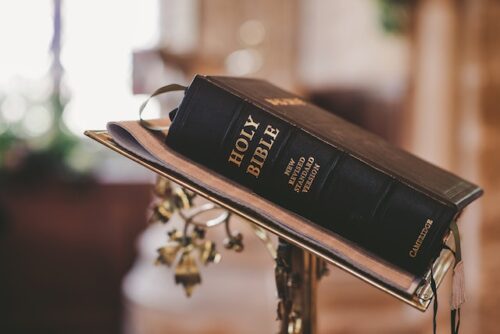
A recent shift in federal green card processing has posed unexpected challenges for foreign-born religious workers aiming to establish long-term residence in the U.S. Traditionally, green cards, which are pivotal for achieving permanent residency and eventual U.S. citizenship, are obtained via sponsorship by family members or employers. The available slots, designated annually by Congress, are split based on familial ties or job expertise. Recently, Attorney Matthew Curtis of the Lightman Law Firm was interviewed by AP News regarding the green card processing change and how it may affect faith leaders from abroad. Read on to learn more about the shift and what Attorney Curtis has to say about it.
The Changing Tides for Religious Leaders
Previously, spiritual leaders typically waited a manageable duration before receiving their green cards, ensuring their visas didn’t lapse in the interim. But in March of 2023, this changed.
In a surprising announcement, the State Department revealed that, for almost seven years, numerous applications from young individuals from Guatemala, Honduras, and El Salvador – who were either neglected or abused – had been inaccurately classified. The department decided to merge these applications with the existing pool that included religious workers. Consequently, only submissions made before January 2019 are under examination.
This realignment, though seemingly advancing the cause of Central American minors, has dealt a blow to certain clergies, compelling them to abandon their U.S. congregations.
Matthew Curtis, of the Lightman Law Firm, was interviewed by AP News regarding the change, and he described the situation succinctly: “It’s like a bombshell the system.”
A Decade of Uncertainty
The queue’s swelling size has led to predictions of a wait spanning at least ten years. A major limiting factor is the annual cap on such green cards, set at a mere 10,000.
In a twist of irony, at a time when religious institutions seek leaders well-versed in multiple languages and cultures, the odds of hiring foreign-born workers are dwindling.
Religious devotees, particularly those who’ve pledged to a life of poverty, such as Catholic nuns, find themselves in a particularly tight spot. The bulk of work visas necessitates proof of prevailing wages, which these individuals, earning no income, cannot provide.
Potential Solutions
The dire situation hasn’t gone unnoticed. Entities such as the American Immigration Lawyers Association, in conjunction with influential faith figureheads, are fervently urging the Biden administration and Congress for resolution. One proposed remedy involves letting these religious workers apply for green cards, enabling them to attain interim work permits similar to other applicants awaiting permanent residency.
In these uncertain times, the hope remains that these invaluable members of the religious community find the support and solutions they rightfully deserve. If you have further questions or are worried this change may impact you, please don’t hesitate to contact the Lightman Law Firm for guidance.